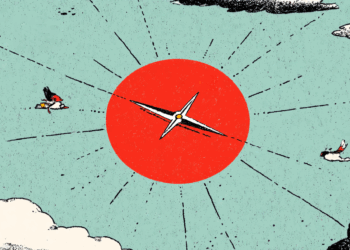Why the glorious 12th should be the ultimate celebration of British conservation success
The glorious 12th — a date that will fill many in our uplands with excitement.
Excitement for the gamekeepers, whose months of toil and effort will finally bear fruit, excitement for the beaters and pickers-up ready to start the season, supplementing their income and enjoying bracing outdoor exercise, excitement for the gourmands waiting to dig into a delicious roast grouse, and excitement for those fortunate enough to be guns on a shoot. The canine companions that accompany these different groups (though perhaps not the gourmands, unless they are particularly eccentric or profligate) will doubtless be similarly filled with enthusiasm, but then again, they are for most things.
For many shooting enthusiasts, a day’s driven grouse shooting is the ultimate incarnation of their sport. Those who are not going driven grouse shooting this season likely cannot help but feel slightly envious of those who are — but their admiration and love of the sport remains true as ever.
The 12th of August is all about uniting these groups in the emotions it stirs up in them. All of them, along with every lover of nature and the countryside, should be filled with pride and joy when they think of the glorious 12th. Pride and joy for this celebration of one of Britain’s greatest conservation success stories.
But then there are those on the other side: the critics. Recent events, however, have shown that the science supports not their arguments, but those of moorland managers and the custodians of our uplands.
Grouse shooting and its associated moorland management have been something of a hot topic in the media as of late. Much of that is thanks to the campaigning work of celebrity presenter Chris Packham (thank you, Mr Packham), though perhaps the end result was not what he had intended — a robust, evidence-based defence of driven grouse shooting, and a statement from Minister of State Daniel Zeichner MP detailing that the Labour government have no plans to ban grouse shooting. No wonder Mr Packham had his head in his hands during the parliamentary debate on his petition.
The scientific evidence is clear. Earlier this year, yet another study showed the importance of grouse shooting and its associated moorland management in encouraging biodiversity and protecting rare ground-nesting birds. This study by the Game and Wildlife Conservation Trust published in March this year, revisited a research project undertaken in Northumberland between 2001 and 2008.
In the original experiment, predators such as foxes and corvids were controlled. As a result, ground-nesting birds experienced a significant improvement in breeding success, and populations of species such as golden plover, lapwing, curlew and red grouse flourished and grew dramatically. The new study shows that, within ten years of predator management ceasing, those species’ populations plummeted by 81 per cent, 58 per cent, 24 per cent and 71 per cent respectively. Grey partridge and black grouse became locally extinct. Unsurprisingly, predators thrived, with crow numbers increasing by 127 per cent and fox numbers by 78 per cent. The research area’s habitat was largely unchanged — stopping predator control was the key factor behind the declining bird populations.
Nor is it just predator control that is important. Rotational heather burning, or muirburn, is similarly ecologically beneficial. Scientific research from the University of York has shown that burning heather encourages an increased diversity of vegetation, with higher levels of sphagnum moss — which supports peat formation. The removal of the older, taller heather also encourages ground-nesting birds, who find it easier to nest in. Unmanaged moorland areas were also found to be drier than areas subject to burning — something that presents a great risk of wildfire. The damage wildfires cause to the moorland ecosystem, let alone the huge carbon losses they cause by burning into the underlying peat (unlike controlled heather burning), is an ecological and environmental disaster.
Unfortunately, gamekeepers are unfairly demonised by some. In fact, recent data showed that an upland gamekeeper is physically assaulted every twelve days. Those who hold such disdain for these managers or our moorlands would do well to consider the valuable work they do for the environment. If you want to see golden plover, curlew, or even hen harrier; your best bet is to go to a grouse moor. This moorland management happens because of the shooting industry, and it would not be possible without the shooting industry. Grouse moor owners in England spend £52.5 million every year on managing moorland — where would this money come from if not from them?
All those who love nature and the countryside should therefore see the twelfth of August as a truly glorious day. It is the ultimate celebration of the grouse, of healthy and biodiverse moorlands, of the gamekeepers who keep it that way, and of our moor owners who fund their management.
This year’s grouse season looks to be a mixed bag. Lower numbers of breeding hen grouse, following last year’s disappointing season, of course resulted in fewer broods. Outbreaks of heather beetle have made matters worse. The knock-on effect is that many moors will have fewer days this season, bringing in less money to their businesses, as well as the wider rural economy (for which the shooting industry is vital — we should not forget that it contributes £3.3bn to the British economy every year).
You should mark the glorious 12th with a smile
There are many different cogs in the machine, but grouse shooting provides livelihoods for tens of thousands of people, pours huge amounts of money both into rural areas and the nation’s economy, and is responsible for one of Britain’s greatest conservation successes.
So, next week, whether you are a birdwatcher or a beater, a grouse-loving gourmet or a gun, an environmentalist or an economist, you should mark the glorious 12th with a smile — for it is, in its deeper essence, a celebration of things that you hold most dear.












